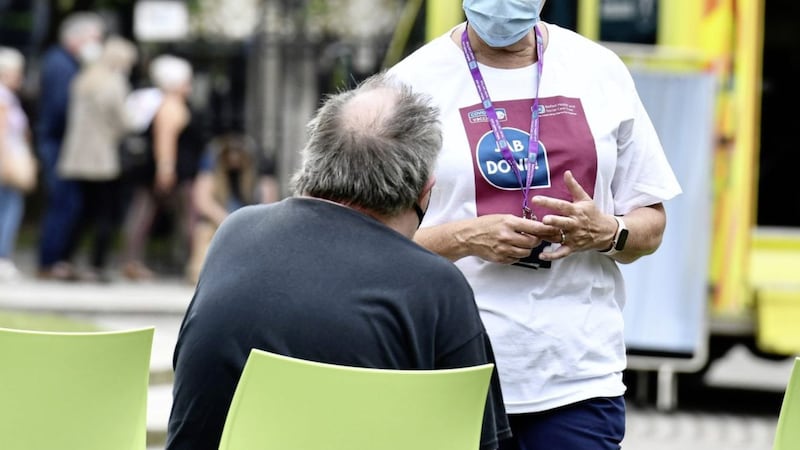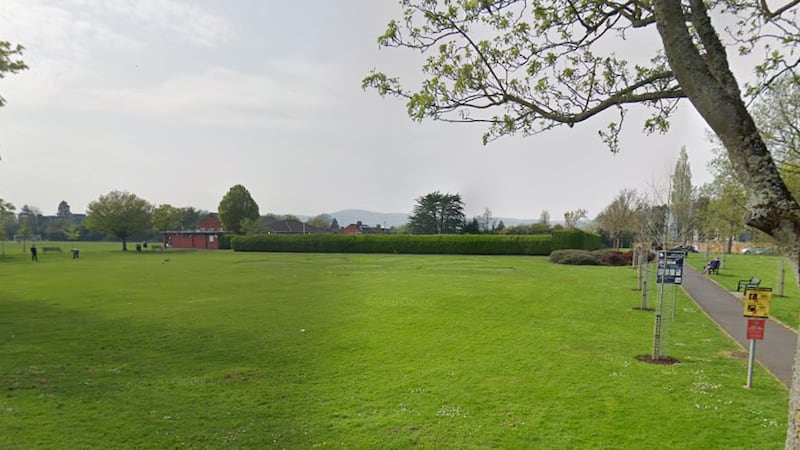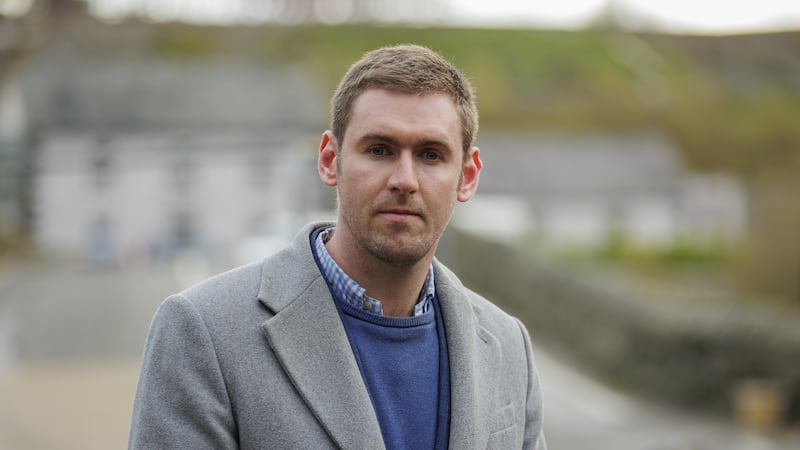Chief Scientific Adviser Professor Ian Young says the north could be facing a more severe wave of Covid-19 than Britain due to it lagging behind in vaccination rates.
In Northern Ireland, 83% of the adult population have received first doses while 71% are fully vaccinated.
Professor Young told the Assembly Health Committee this morning: "I have to note that we lag behind England, Scotland and Wales in terms of first dose vaccination by around by 5 to 6% minimum, and in some cases by more than that.
"In terms of second doses vaccination, we're very similar to England and Scotland but we lag behind Wales by about 10%.
"So, there has been a concern that the willingness of the Northern Ireland population to come forward for vaccination, for whatever reason, seems less than that in other parts of the UK and that will lead to a larger susceptible population in Northern Ireland and therefore the potential for a more severe wave on this occasion.
"Every small percentage increase in vaccination that we can achieve will make a real difference in terms of how quickly the current wave will resolve and the potential for future waves."
The head of Northern Ireland's vaccination programme, Patricia Donnelly, told MLAs that vaccination uptake among the 18-29 age cohort has been "incredibly slow".
She said it was a cause of "enormous concern" that the pace of the vaccination programme "went off a cliff" in June when it opened to this younger age group.
Just under 60% of 18-29 year olds have received a first jab. The next lowest uptake rate is 70% for the 30-39 year olds. All the age cohorts over the age of 60 have a 100% uptake rate.
Ms Donnelly said behavioural experts had advised that the reluctance of young people to come forward was more about convenience than due to any safety concerns.
She said officials had undertaken a number of initiatives to encourage young people to come forward, including providing areas in vaccine centres where they could take selfies.
"We realised that if we didn't allow the opportunities for selfies, it may not actually even be seen as an important event so we created those areas within the centres," she said.
Ms Donnelly said 31,000 more people would need to get vaccinated to get Northern Ireland to 85% of adults having first doses. She expressed hope this could be done by the end of August but said "hard yards" would be needed to achieve it.
She said while 90,000 people a week were getting vaccinated earlier in the roll out, the programme has slowed to the extent where it would be "lucky" if 1,000 to 2,000 people were getting jabbed each day.
Professor Young said increasing positive case numbers may have "plateaued" in recent days.
He added that there are two possible explanations for this - altered behaviours due to the good weather, or higher levels of immunity among younger people.
He said if the weather was the cause then case numbers should start to rise again now the heatwave has passed.
If the drop was down to increased immunity among younger people then cases are expected to gradually decline, he added.
In terms of modelling the virus, Professor Young said the trajectory of case numbers has now dropped below the central scenario and is between the central and optimistic models.
He said under the central scenario case numbers would peak at around 3,500 to 4,000 a day in this wave - a figure based on the assumption that all those infected came forward for testing.
The central model predicted around 400 Covid-19 inpatients by the end of August.
Professor Young said hospital numbers are tracking between the central and pessimistic models.
However, he stressed that the numbers in hospital, including in ICU, are currently a third of those witnessed in previous waves.
He credited the vaccines with reducing the percentage of infected people who were ending up in hospital. He said this rate was between 5% and 6% in February's wave and is now between 3% and 4%.
Given the recent drop in case numbers, the chief scientific adviser said he expects inpatient numbers to "stabilise" towards the end of next week.
1,800 healthcare staff are off work due to Covid-19
Meanwhile, Paul Cavanagh, the interim director of planning and commissioning with Northern Ireland's Health and Social Care Board, told MLAs that 1,800 health care staff are currently off work due to Covid 19.
Mr Cavanagh told the Assembly's Health Committee that the staffing shortages were having an impact on the ability of the health service to cope with increasing numbers of Covid-19 inpatients.
He said while some of the 1,800 staff had been infected with Covid-19 the "vast majority" were isolating after being identified as a close contacts of someone else with the virus.
"Some 1,800 staff are currently off due to Covid," he told MLAs.
"Some of them are infected but the vast majority of them are actually isolating due to contact with others who have tested positive, so it's a large number of staff that are currently unavailable to us and obviously we're looking at where the opportunities are for those double-vaccinated staff, the majority of whom are double vaccinated of course, how we can actually see how we can maintain them in work despite coming into contact with someone who has been infected."
Mr Cavanagh said around 120 surgeries planned for this week in Northern Ireland had been cancelled due to the need to free up staff to cope with increasing Covid-19 admissions.
ONLY two days to go until regional vaccination centres stop giving first dose #COVID19 jabs.
— Department of Health (@healthdpt) July 29, 2021
Getting your jab will never be easier or more accessible than it is now. Don't miss out!
For more details on walk-in jabs or to make an appointment, visit https://t.co/ygDvQlhn3L pic.twitter.com/mMjETHwZVX








